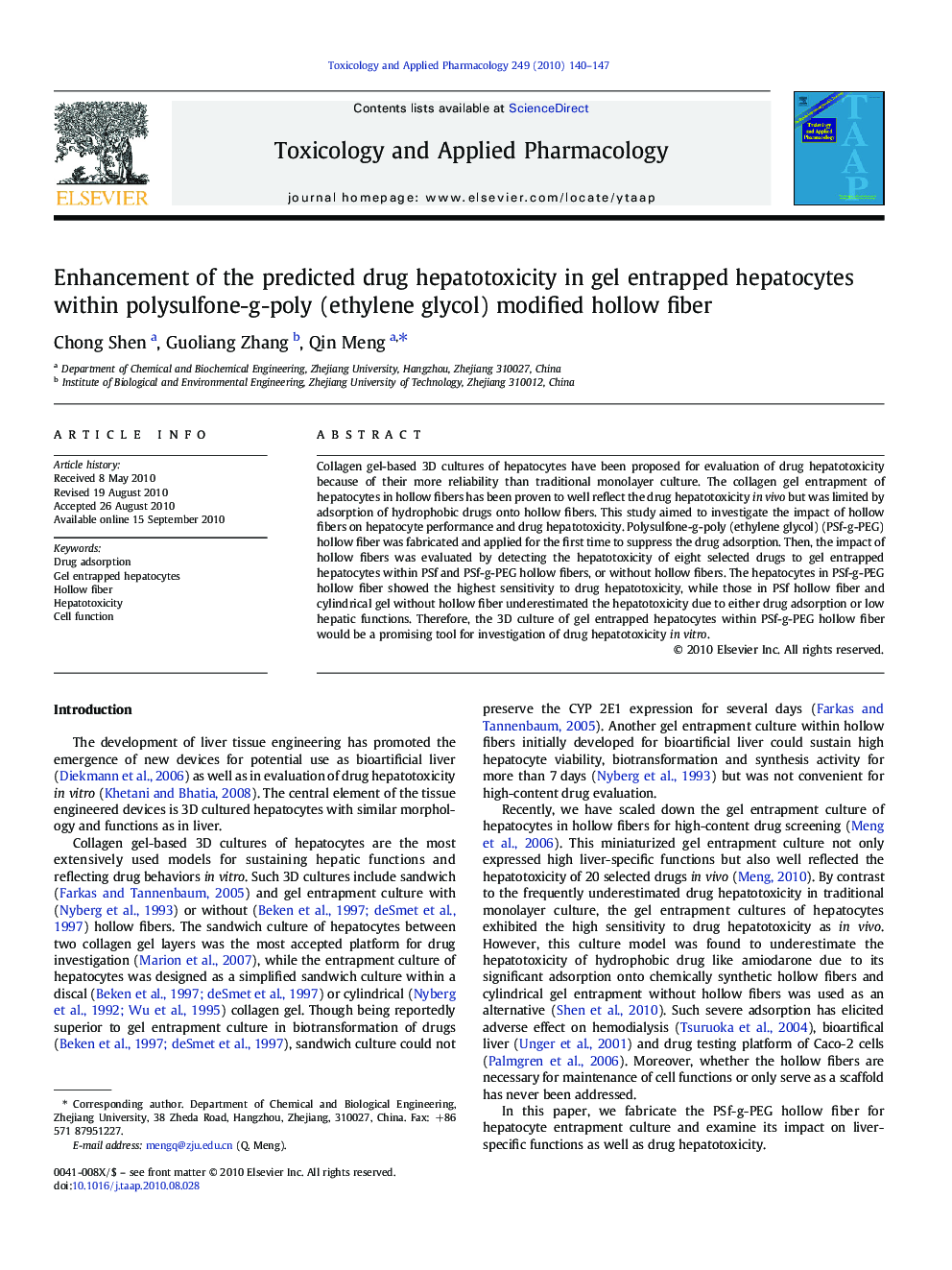| Article ID | Journal | Published Year | Pages | File Type |
|---|---|---|---|---|
| 2569808 | Toxicology and Applied Pharmacology | 2010 | 8 Pages |
Collagen gel-based 3D cultures of hepatocytes have been proposed for evaluation of drug hepatotoxicity because of their more reliability than traditional monolayer culture. The collagen gel entrapment of hepatocytes in hollow fibers has been proven to well reflect the drug hepatotoxicity in vivo but was limited by adsorption of hydrophobic drugs onto hollow fibers. This study aimed to investigate the impact of hollow fibers on hepatocyte performance and drug hepatotoxicity. Polysulfone-g-poly (ethylene glycol) (PSf-g-PEG) hollow fiber was fabricated and applied for the first time to suppress the drug adsorption. Then, the impact of hollow fibers was evaluated by detecting the hepatotoxicity of eight selected drugs to gel entrapped hepatocytes within PSf and PSf-g-PEG hollow fibers, or without hollow fibers. The hepatocytes in PSf-g-PEG hollow fiber showed the highest sensitivity to drug hepatotoxicity, while those in PSf hollow fiber and cylindrical gel without hollow fiber underestimated the hepatotoxicity due to either drug adsorption or low hepatic functions. Therefore, the 3D culture of gel entrapped hepatocytes within PSf-g-PEG hollow fiber would be a promising tool for investigation of drug hepatotoxicity in vitro.
